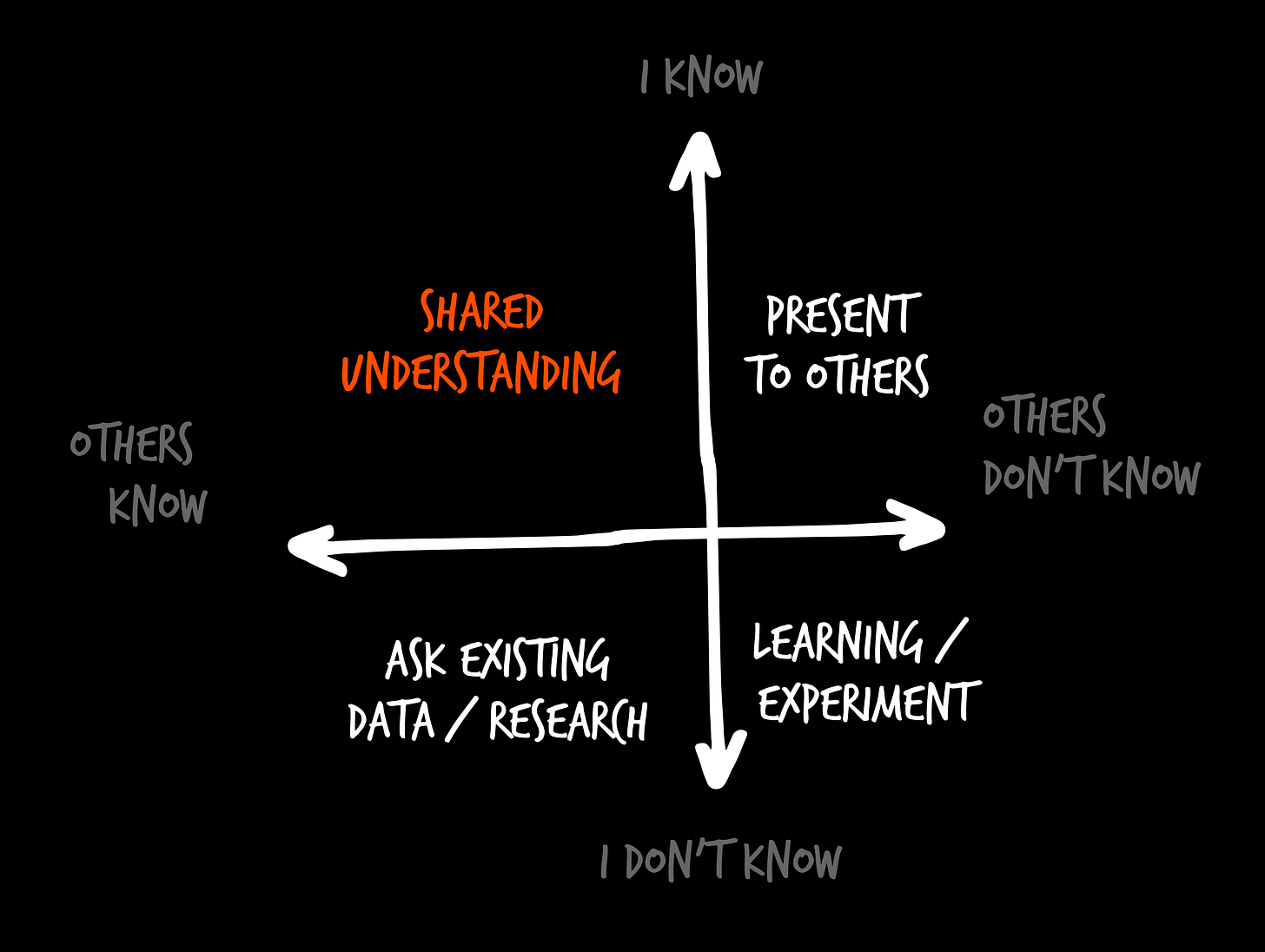A simple framework to start getting the right information from the right source
#30: The more information you gather, the increasingly confident and sensible your decisions and reasoning become.
The pregnancy journey with our second child wasn't as smooth as the first. There was some serious bleeding early on. Our first doctor believed the pregnancy might not continue due to a condition called a blighted ovum, giving it only a 10% chance. The doctor strongly recommended a procedure immediately, even though waiting until the next week was an option. He emphasized the slim chance of success.
Our hearts were broken, but our spirits remained resilient. A glimmer of hope prompted my wife and me to seek a second opinion. Unfortunately, the second doctor confirmed the same diagnosis. Nevertheless, he made an effort to conduct a thorough check and maintain a positive outlook.
Long story short, the fetus grew, and everything turned out fine. We continued to consult with the second doctor for ongoing care. He was very thorough, meticulously examining extensive data from various blood tests. My wife and I felt that the second doctor was thoughtful, considering all available facts before communicating with us. My mom mentioned that during her pregnancy with me, there were no detailed examinations like what my wife experienced.
I guess that in the past, medical practices might not have been as sophisticated as they are now, given advancements in tools and knowledge. With the improvement in medical understanding of pregnancy and prenatal care, healthcare professionals have been better equipped to identify and address risk factors that can lead to miscarriages.
Just as a product designer gives birth—not to babies, but to a product, a solution—precautionary measures play a crucial role in the preparation process. Prudence and curiosity should serve as the fuel to develop a holistic understanding of the intricacies.
Rushing to conclusions like my first doctor did is very risky. Sometimes, admitting "I don't know" and seeking more information can be challenging. This might come from a fear of looking incompetent or a desire to keep the process moving according to the timeline.
This isn't the ultimate guide on how you can gather information, close gaps, and ultimately boost your confidence and decision-making accuracy. I realized that the first and foremost step to improve how we gather information is to be aware of what we know, what we don't know, and how others possess the information—and yes it’s not just about you, but also your team.
I developed a simple framework inspired by the Johari Window technique, which is meant to assist individuals in improving their comprehension of self and relationships with others. In our context, the goal is to understand the knowledge and information held by you and your team.
When you don’t know, and you think others might know: Ask or search for existing data/research.
When you don’t know, and others have no idea as well: Go research, learn, or experiment.
When you know something that others don’t know: Find a way to show and tell.
When both you and others know something, that's called shared understanding. You want to make the shared understanding bigger.
We are only an expert in the past. It’s alright if you don’t know about a particular thing; at least you know what you don’t know. It becomes risky when you think everything is fine, you might feel confident (maybe over), and you don't work on building a shared understanding.
Have a pulse check:
How far have you gone in revealing the constraints? Ask others.
How far have you gone in collaborating with your stakeholders to solve problems? Step out of your bubble and talk to them.
How far have you gone in going into the field and meeting users? Research. Learn.
How far have you gone in identifying your weak and evidence-lacking decisions? Ask for existing data/research or do some more research, learn, or have another initiative as an experiment.
How far have you gone in taking actions that you and others don’t know about? Again, research, learn, or experiment.
How far have you gone to acquire the necessary data/information to strengthen your premises? Ask others, they might have it.
The more information you gather, the increasingly confident and sensible your decisions and reasoning become—and it starts with your consciousness.
This post is dedicated to my little angel. Someday, I want to tell you aloud how grateful I am for your presence :)
Support Design Buddy
All the content on Design Buddy and in the newsletter is accessible to everyone for free
If you like my post, please consider giving it a ❤️
Share it with your design friends.
Subscribe to the newsletter, if you haven’t.
If you have any comments or feedback, or if you'd like to get in touch, feel free to send me a message. Thank you for subscribing!
Join Design Buddy Club
If you haven’t joined our community, join here (It’s still quiet, though – waiting for you)
Digital Handbooks for designers
I'm writing two handbooks to guide designers with valuable insights, helping them thrive in their craft.
Frameworks for Thinking offers various frameworks and tools to help designers and creatives think critically, generate new ideas, and solve complex problems.
Deliberate Practice for Designers provides guides and insights to help you master your craft and become a lifelong learner through deliberate practice.


